Explore Mexico Through Frida Kahlo’s Eyes
Frida Kahlo is a well-known Mexican painter. Her work is often autobiographical and tells stories of what she was going through during the time of creation. Known for her iconic unibrow, Kahlo’s story is deeply intertwined with Mexican culture and history. Take in Mexico from a unique, artistic perspective by traveling through Frida Kahlo’s Eyes.
Videos by Outdoors
La Casa Azul, Museo de Frida Kahlo
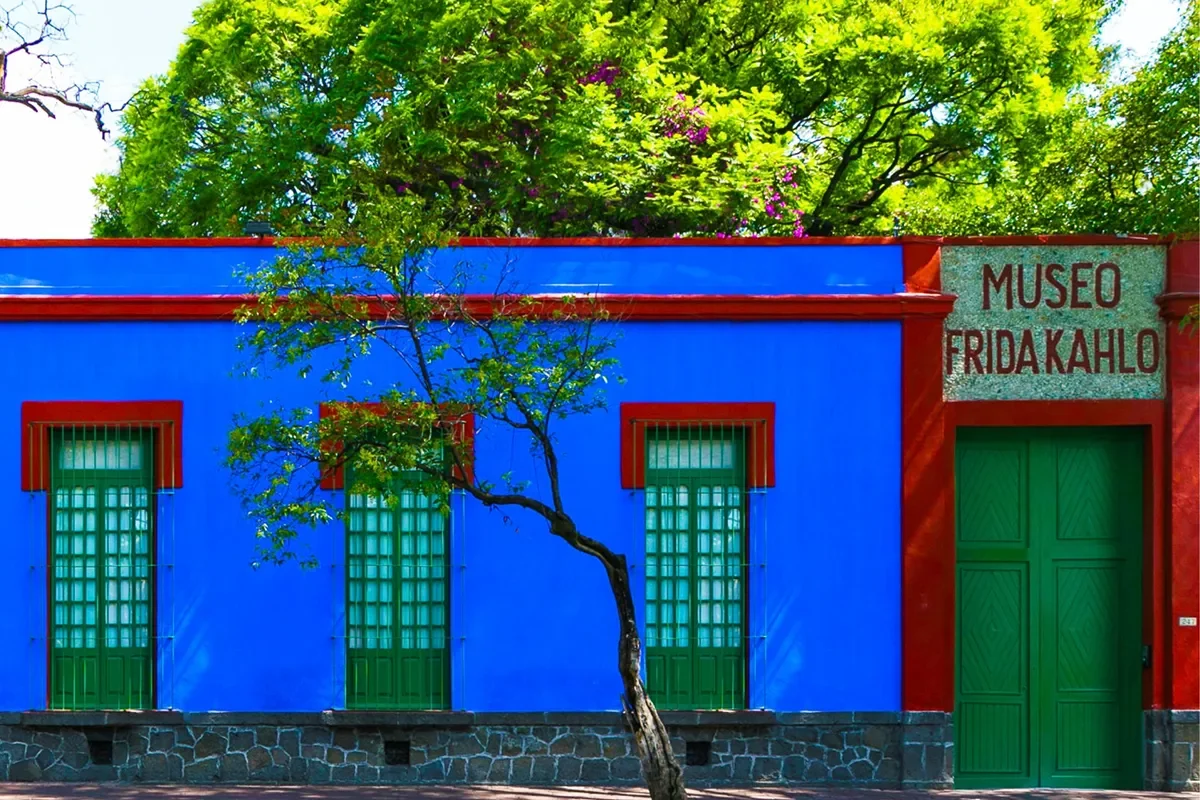
La Casa Azul (the Blue House) is the former residence of Frida Kahlo and her family. The Museum, which opened in 1958, exhibits personal objects and artworks by Kahlo and her husband Diego Rivera. Walk through the artist’s beautiful and vibrant home and explore the gardens in the courtyard to get an intimate look into the world of the tragic artist.
In each room of the home, there are objects specific to Kahlo and Rivera’s life together. Visit the artist’s bedroom where she created many early works, as well as the studio and the easel that was given to the couple from Nelson Rockefeller. When you reach the gardens of Kahlo’s home, you can view beautiful plants that were propagated by Kahlo herself.
When you visit Museo de Frida Kahlo, you can sign up for a dramatized visit and explore her home with someone who knows her stories inside and out—it will almost feel like she is there with you.
Museo Casa Estudio Diego Rivera y Frida Kahlo
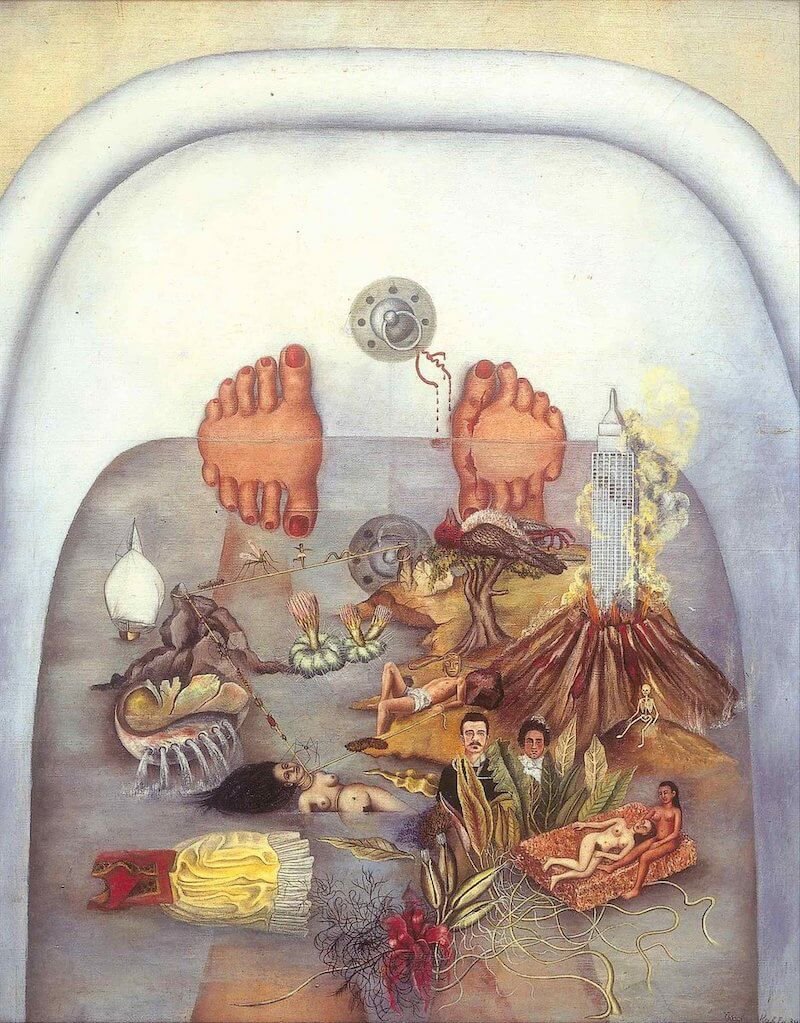
Much of Kahlo’s adult, working life is deeply connected to that of her husband, and former mentor Diego Rivera. Though La Casa Azul is the more famous abode of the Mexican painter, it was not her only residence during her life. Museo Casa Estudio was the shared twin-house compound of Kahlo and Rivera. The two homes are connected by an elevated bridge and similarly to La Casa Azul, these homes are filled with artifacts connected to the painter and muralist’s lives.
The left house—Rivera’s house—is full of paper-mache cartoneria figurines as well as his “judas” collection. The right home, which is also blue, belonged to Kahlo and though there aren’t any works of the artists’ in this home, the furniture and bathroom have remained intact. Kahlo’s painting “Lo Quel El Agua Me Dio/What the Water Gave Me,” depicts Kahlo’s feet in the bathtub of this home, so make sure to take a look into the bathroom to get a sense of what she was feeling when she was painting in this home.
Floating Gardens of Xochimilco
Kahlo and Rivera would visit the Floating Gardens and explore the various fruits, vegetables, and flowers that were eventually taken to Mexico City. The agriculturalists built boats and rafts made of reeds and mud from the bottom of the lake. Although these gardens weren’t owned by Kahlo or Rivera, they frequented the gardens. There are many tours that you can take throughout the Floating Gardens of Xochimilco and take in the beauty of these floating gardens on the canal. After years of using the rafts to grow these gardens, they will often take root and create islands on the water.
Antiguo Colegio de San Ildefonso College
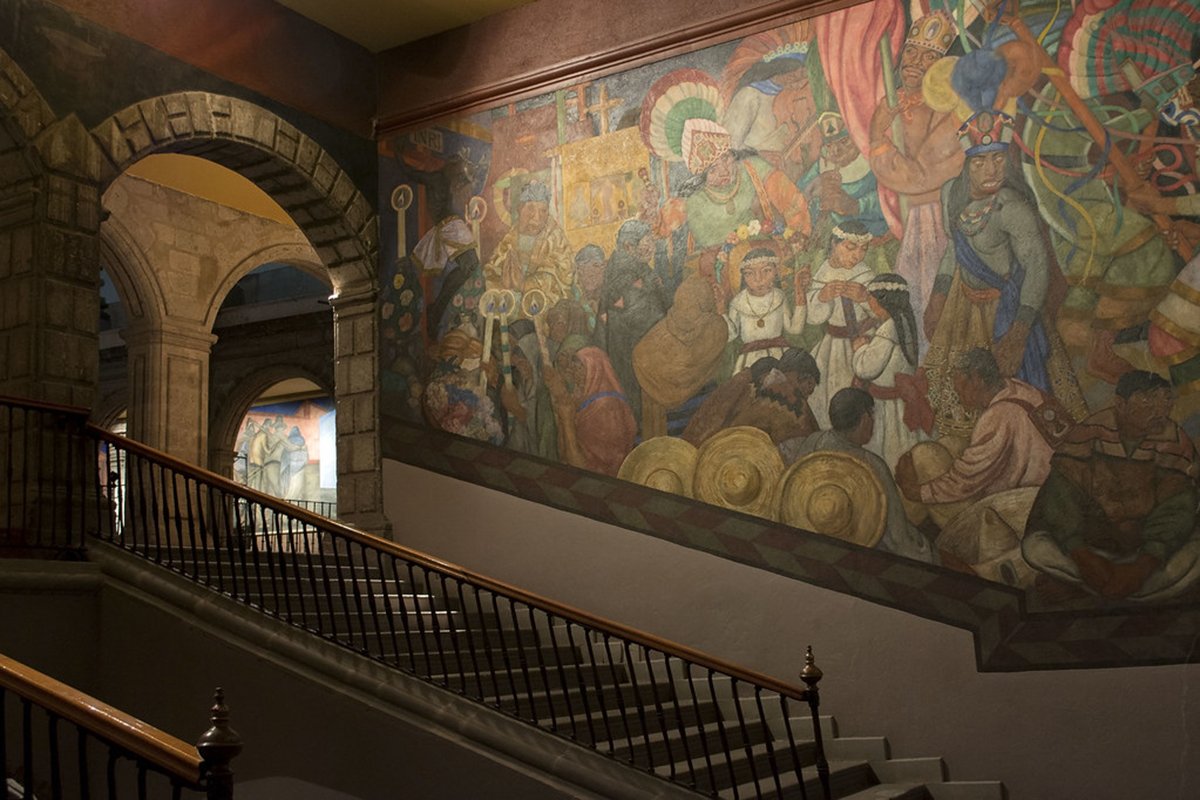
Frida Kahlo attended Antiguo Colegio de San Ildefonso College after it was transformed into a preparatory school during the 19th century. The college, which is connected to the Jesuit church, is an academically challenging school that is still open today. Not only did Kahlo go to Antiguo Colegio, but this is also where she met the artist Diego Rivera, her future husband .
Antiguo Colegio de San Ildefonso College is incredibly important to the culture of Mexico City and though it is often overlooked, it plays an important role in the world of Mexican contemporary art.
Museo Mural Diego Rivera

Home to Rivera’s most famous work, Sueno de una tarde Dominical en la Alameda Central (Dream of a Sunday Afternoon in the Alameda Central), Museo Mural Diego Rivera is home to many of the stunning works that Rivera created during his lifetime. Dream of a Sunday Afternoon in the Alameda Central tells the story of Mexican history from the Conquest to the Revolution of 1910. Within the painting, there is also a portrait of Kahlo, as well as a portrait of Rivera as a child.
The museum was built in 1986 to house this mural, and it is the only artwork in this museum. Museo Mural Diego Rivera is also often overlooked because of the limited amount of works on display there. However, Museo Mural participates in research and exhibition development and offers guided tours and workshops that you can go to when you visit Mexico City.
Museo Dolores Olmedo
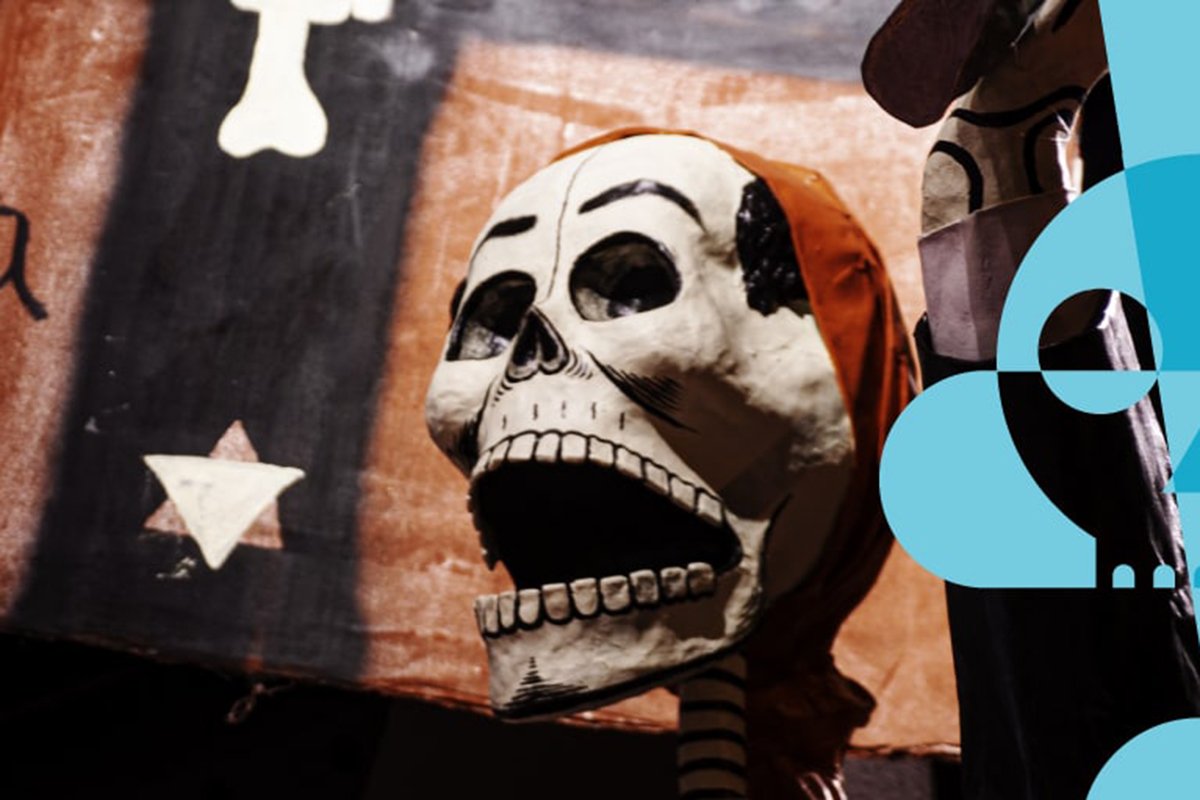
Located in Mexico City, Museo Dolores Olmedo is home to the largest collection of Frida Kahlo and Diego Rivera works in the world. The museum, which opened in 1994, is currently hosting an exhibition that has turned it into a large altar to the dead, in honor of Dios de los Muertos. Museo Dolores Olmedo is split into an altar and an exhibition of calacas. If you go to visit between now and February 28, 2024, you can view the portrait of Dolores Olmedo painted by Rivera himself.
Museo Dolores Olmedo is also home to over 900 archeological objects to explore the ancient cultures that inhabited Mexico. After you’ve explored the exhibitions and beautiful permanent collections of the Museo Dolores Olmedo, you can explore the gardens on the outside of the museum. Dolores Olmedo dedicated her life to making Mexico beautiful by investing in artists and groundskeeping.
Palacio de Bella Artes
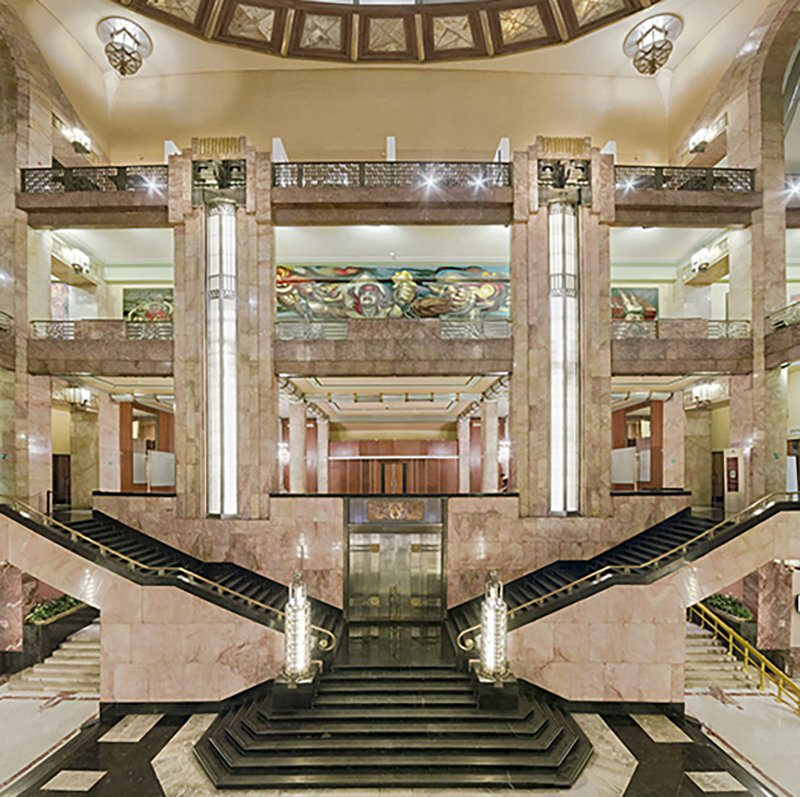
Frida Kahlo tragically passed away in 1954. Even though she and Diego Rivera had a very tumultuous and complicated relationship, he still held her funeral at Palacio de Bella Artes. On the day of the funeral, guests filled the portico of Palacio de Bella Artes, and many fans of the artist came to pay their respects.
Palacio de Bella Artes houses a variety of styles of art including murals by seven different Mexican muralists. Palacio de Bella Artes was inaugurated in 1934 and many of the murals were created specifically for Palacio de Bella Artes. The building itself is also a work of art, pulling architectural inspiration from Art Deco and Art Nouveau styles. When you enter the building, you are greeted by dozens of beautiful works by Mexican artists.
Frida Kahlo Park
Frida Kahlo loved gardens and the outside world, and though towards the end of her life, being outside was difficult for her, her love for it never dwindled. In 1984, 30 years after her passing, Mexico City opened the free state park, Frida Kahlo Park for tourists and citizens alike. The park features three bronze statues of Kahlo, as well as a few of her husband.
To ensure a peaceful and serene environment for visitors, the park does not permit bikes or skateboards. The park features beautiful sculpture gardens and heavily landscaped walkways for those who come to visit. The park has been designed to be quiet and though it occasionally hosts different food festivals and fairs, Frida Kahlo Park is a wonderful place to go for a few quiet moments during a whirlwind trip through Mexico City.
Though the park is free from bikes and skateboards, you will still hear the sound of children playing in the park. Though Kahlo never had any children of her own, she loved kids and hoped to be a mother. However, due to her trolley accident as a young adult and her many surgeries, she and Rivera never had children during their marriage.
Source: https://outdoors.com/explore-mexico-through-frida-kahlos-eyes/







